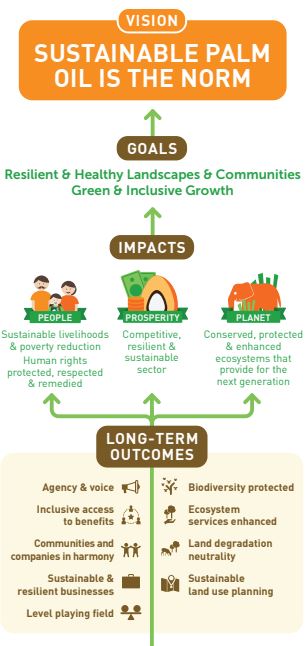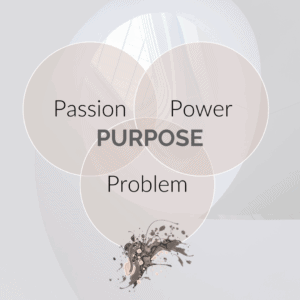Large-scale conversions of tropical forests to palm oil plantations has devastated eco-systems across the world, primarily in Indonesia and Malaysia.
This devastation includes the lives and livelihoods of the people and communities in surrounding areas.
Beyond the moral imperative, why should businesses care?
To flourish, oil palms need a rainforest climate – consistently high humidity and temperatures.
Rainforests also help minimize flooding and soil depletion by absorbing rainfall and then releasing it into streams and rivers.
Destroying the eco-system they rely on to produce palm oil through mass deforestation, the loss of biodiversity, polluting the soil and water, and displacing established communities, thus threatens the long term security of their supply.

If rainforests are not healthy and resilient, they will eventually become obsolete, along with the palm oil plantations nearby.
And that’s a serious problem for palm oil producers and the companies utilizing palm oil in their products.
If that’s so obvious, why wouldn’t they immediately take action? Why wouldn’t they seek to build, maintain, and utilize sustainable sources of palm oil?
Well, just because it’s rational, doesn’t mean they will. It comes down to a short-sighted compulsion to remain competitive in today’s existing market.
If only one company decides to use sustainable palm oil, they increase their costs while competitors keep theirs down.
But if many companies collectively commit to sourcing sustainable palm oil products, then their risk of increased competition diminishes.
Companies who recognized this opportunity came together in 2010 to form the Roundtable on Sustainable Palm Oil.
The Power of Collective Impact
The Roundtable on Sustainable Palm Oil brings together growers and buyers, commodity traders, non-profit environmental and social groups to transform the industry, and make sustainable palm oil the norm.
Since launching in 2010, they have certified 4.2 million hectares of land. Certification means the management and operations have been deemed as legal, economically viable, environmentally appropriate, and socially beneficial.
We see a future where it is standard practice to realise benefits for all palm oil stakeholders by improving conservation, reducing poverty, supporting sustainable livelihoods, valuing community participation, and ensuring fair labour practices and the economic viability of businesses.
RSPO Impact Report, 2018
Shared Value in Action
This kind of action takes forethought, intentional collaboration with competitors, and a significant investment of time and resources.
But to ignore the problem and continue operating under the status quo would not only be fatal to multitudes of species, but profits as well.
Instead, by working together, these partners are finding ways to make decisions that are good for people and the planet, good for business.
To be clear, there are still a number of challenges to tackle.
To start, some argue that the RSPO’s certification standards don’t go far enough to protect the rainforests and human rights of local community members.

As Emma Cosgrove of Supply Chain Dive reports, the companies who have committed to using sustainable palm oil aren’t always following through.
In addition, maintaining the standards necessary to receive certification requires local buy-in from growers and regional government.
Investing in Shared Value Requires Foresight
Until all players truly understand the stakes – including their long-term viability – we are unlikely to make the kind of progress needed to solve this problem.
It takes intention, creativity, and effort, but identifying how solving a problem overlaps with the long term viability of your company, is perhaps one of the most promising pathways for creating meaningful, long-term impact.
This kind of effort goes well beyond philanthropy, or a commitment to minimizing harm to people and planet.
It is a concrete investment in solving a societal problem.
But taking the time to understand how societal problems threaten your business too, will incentivize immediate and sincere action.
If you’re interested in developing a shared value product, service or collective action, be sure to check out my service packages.



